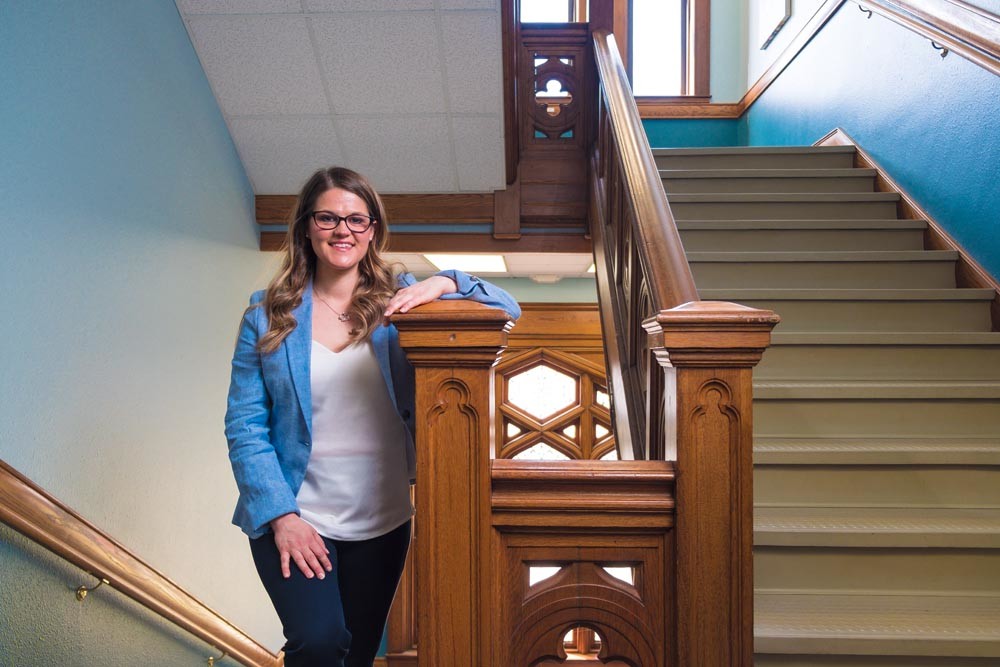YOUR BUSINESS AUTHORITY
Springfield, MO
YOUR BUSINESS AUTHORITY
Springfield, MO

House Bill 1246, effective March 2019, dictates that human trafficking hotline posters are required to hang in businesses including hotels, airports, train and bus stations, and emergency rooms. Why is this important?
It’s really exciting that this passed unanimously and there has been bipartisan support, as well. It can help people who are victims and don’t even understand they are being victimized. Also, the more community education, the less of an issue it will be overall.
What does the community need to be educated on?
A lot of people don’t understand what the victimology side looks like. There’s still a public perception … that it doesn’t happen here. People have seen movies like “Taken,” and that does happen, but it is an exception to the rule. What we see more often, and what’s consistent with the federal law, is that it’s basically people who are involved in commercial sex under force, fraud or coercion. What most would call prostitution is probably more statistically human trafficking.
How can businesses, even if not required by law to hang this poster, help with the fight against human trafficking?
The Business Council Against Human Trafficking of the [Missouri] attorney general’s office started this year. Local businesses can join. The Department of Public Safety makes (the poster) available on its website. At a local level, we have a coalition – Stand Against Trafficking – that anyone would be welcome to attend. We’d love to have business owners as representatives on the coalition. We would be a local resource to them if they wanted to do their own poster. We could help them design it where it’s factual, educational and helpful.
Please explain the labor side of human trafficking.
The Trafficking Victims Protection Act is the general law that defines that. It’s basically if people are being forced or coerced into a work situation where they aren’t free to leave in the way that we typically think of at work. There are people who find themselves in situations where they’re maybe in debt bondage. It’s an amount of money that is impossible to reach, and they are not usually paid by (legal standards. So, it’s basically putting them in a situation where it’s impossible for them to ever leave. They are essentially in a form of slavery. It can be any business, but often, it’s in a factory farm situation, agriculture situation, even the hotel and hospitality industries.
Last year, 13 Springfield massage parlors were raided and shut down because of suspected human trafficking and prostitution. What’s been the impact in the community?
There are a number of people either in denial or ignorance. They can’t imagine that it happens. But it’s a real issue, and it’s a real issue here. (The raids) certainly made national news – it was on CNN – so it’s kind of impossible to ignore. When there are so many businesses shut down, I think that kind of puts it right in front of your face where you can’t continue to deny it happens.
Rachael Herrington can be reached at rherrington@drury.edu.
Utah-based gourmet cookie chain Crumbl Cookies opened its first Springfield shop; interior design business Branson Upstaging LLC relocated; and Lauren Ashley Dance Center LLC added a second location.
Updated: Systematic Savings Bank to be acquired in $14M deal
Former CoxHealth colleagues starting communications firm
Warby Parker store planned in Springfield
Former Wentzville superintendent to get $1M in contract buyout
STL construction firm buys KC company
NPR editor resigns after writing piece critical of organization
Survey finds increase in average salary Americans willing to take